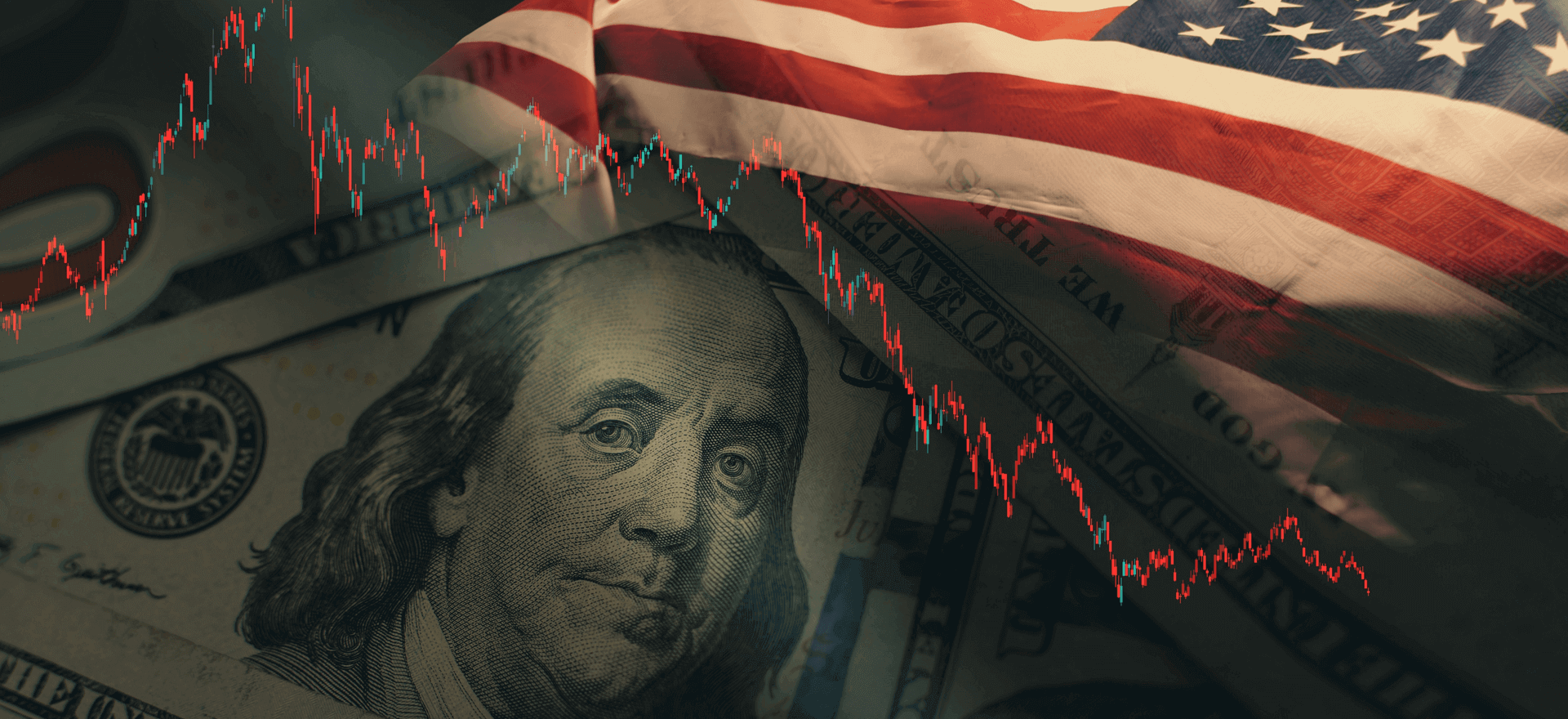
Investing|Reports and company information
December’s investment market commentary
The fourth quarter of 2023 was virtually the mirror opposite of the prior quarter, starting poorly but a very good period for markets overall. This was primarily due to a big move lower in government bond yields during November and December, which came after the US 10-year government bond yield peaked at just over 5% in October, a level not seen since the 2008 Financial Crisis.
As we have highlighted before, moves in bond yields impact most financial assets as investors try to value investments through the present valuing of future cashflow streams. If the discount rate (government bond yield) moves lower, the present value of those cashflows increases. As such, markets generally like falling bond yields, especially if economic growth is also not slowing too much.
There were several good reasons during the quarter for the sharp fall in bond yields. Firstly, there were signs that inflation is decreasing in the US, Eurozone, and even the UK. This reduced concerns about inflation being difficult to control in the near future due to tight labour markets. Secondly, declining oil prices not only helped with the wider falling inflation picture but also the ‘soft landing’ growth outlook, as high energy prices are essentially a tax on activity. Finally, and perhaps most importantly was the more ‘dovish’ central bank language coming from the US Federal Reserve. Its tone seemed to change (over the space of a few policy meetings) regarding interest rates, from ‘higher for longer’ to ‘higher for not much longer’. The market took this as a signal to price in a significant number of interest rate cuts for 2024. However, whether all these cuts will occur may be asking too much. Nonetheless, it was very supportive for virtually all markets in the last few months of 2023.
Beyond inflation and interest rates, geopolitical risk also eased during the last few months of the final quarter. The Israel-Hamas war looked to be contained. While there was an awful loss of life, this reduced the risk of a much broader regional conflict; with both sides agreeing to a temporary truce combined with a release of some hostages towards the end of November. Signs of easing US-China tensions were also seen in November, with a meeting between US President Biden and Chinese President Xi Jinping at the Asia-Pacific Economic Cooperation Conference in San Francisco. The hope is that the more positive tone that came from this meeting (the first time the two have met in about a year) can translate into a reduction in uncertainty and a better economic relationship going forward.
How did all this translate to financial markets?
Well, overall it was a very good quarter for market returns. Global equities increased by +9.4%, with US equities (+11.8%) the best performing, helped by the strong performance of technology stocks. Emerging markets (+5.6%), and Europe ex-UK (+5.6%) also performed well, while the UK (+2.3%) lagged due to its higher exposure to commodities (especially oil) which fell during the period. In terms of equity styles, growth stocks (+12.8%) outperformed value (+9.3%), and small-cap stocks (+12.1%) outperformed large caps, mainly because interest rate expectations fell. This was reflected in sector performance, with information technology (+17.6%) and real estate (+15.0%) the strongest two sectors, although industrials (+13.4%) and financials (+12.6%) were not far behind, while energy (-2.7%) lagged significantly as oil prices fell.
Fixed income markets were also strong. In fact, certain bond markets posted their best quarterly return in decades, with the global aggregate bond index rising +6.0% over the quarter. Looking at the detail, global government bonds (+5.3%) performed well but lagged behind riskier fixed income bonds, which were supported by the strong increase in equities. This was seen in global investment grade credit (+7.5%), global high yield (+6.7%), and especially, global emerging market debt (+9.3%).
In the real assets space, both global real estate (+15.6%) and global infrastructure (+11.2%) performed very strongly, reflecting their sensitivity to falling interest rate expectations. Commodities displayed mixed performance in the quarter. While the broad index was negative (-4.6%), there was significant variance within the index. Crude oil (-17.5%) fell back further due to higher-than-expected supplies, lower demand outlook and declining geopolitical risk, whereas gold (+11.4%) increased on the back of the market’s expectation for steeper cuts by central banks and a weaker US dollar.
| Date | Index | Price | Up/Down | Compared to | |
|---|---|---|---|---|---|
| UKX Index | 29/12/2023 | FTSE 100 | 7733.24 | Up | 30/11/2023 |
| INDU Index | 29/12/2023 | DJ Ind. Average | 37689.54 | Up | 30/11/2023 |
| SPX Index | 29/12/2023 | S&P Comp | 4769.83 | Up | 30/11/2023 |
| NDX Index | 29/12/2023 | Nasdaq 100 | 16825.93 | Up | 30/11/2023 |
| NKY Index | 29/12/2023 | Nikkei | 33464.17 | Down | 30/11/2023 |
| GBPUSD Curncy | 29/12/2023 | £/$ | 1.2731 | Up | 30/11/2023 |
| EURGBP Curncy | 29/12/2023 | €/£ | 0.86691 | Up | 30/11/2023 |
| EURUSD Curncy | 29/12/2023 | €/$ | 1.1039 | Up | 30/11/2023 |
| UKBRBASE Index | 29/12/2023 | £Base Rate | 5.25 | No Change | 30/11/2023 |
| COA Comdty | 29/12/2023 | Brent Crude | 77.04 | Down | 30/11/2023 |
| GOLDS Comdty | 29/12/2023 | Gold | 2062.98 | Up | 30/11/2023 |
Author

Louis Hutchings
Portfolio Manager , London
Louis joined Nedgroup Investments, a sister company of Nedbank Private Wealth, in July 2019 and is a Portfolio Manager within the London team. Louis primarily focuses on macroeconomic research, helping to inform the Tactical and Strategic Asset allocation across the portfolio ranges.
At Nedgroup Investments Louis is Co-Chairman of the International Strategy Committee and a voting member of the Global Investment Committee.
Louis holds the Charted Financial Analyst (CFA) qualification, alongside a MSc in Finance from the London School of Economics and Political Science and a first class BSc (Hons) degree in Economics from the University of Birmingham. Previous experience includes internships at Investec, Capgemini and Wesleyan.
RELATED NEWS
You may also be interested in the following Insights
Sign up for our updates
Stay up to date with the latest news, insights, and opinions from Nedbank Private Wealth by signing up to our newsletter. You can also register to be invited to our virtual events and hear directly from a wide range of experts. Sign up below. You can unsubscribe at any time.













